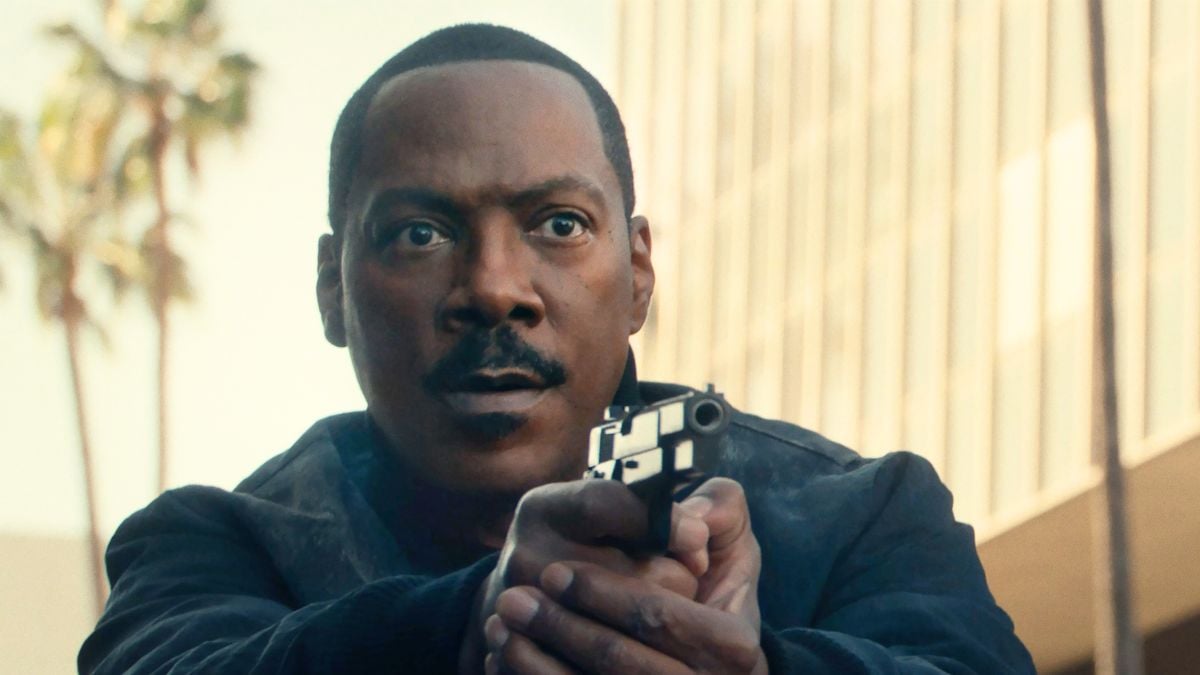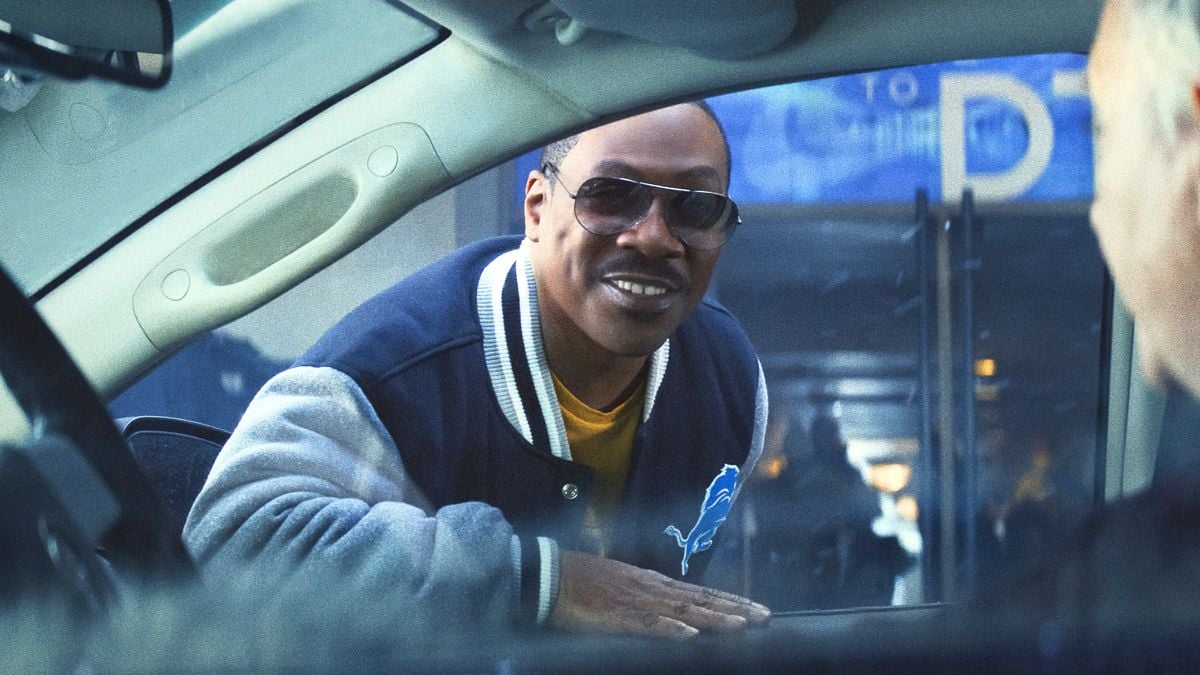Given Hollywood’s autophagic tendencies, it was only a matter of time until Beverly Hills Cop got a revival. Sadly, not even Eddie Murphy can save Beverly Hills Cop: Axel F from being hard-pressed between nostalgia and reinvention.
The first Beverly Hills Cop, released in 1984, is a decade-defining movie that set the tone for cop movies in the 1980s. However, its two sequels saw a noticeable dip in quality, reflected by the negative reception of fans and critics alike. 1994’s Beverly Hills Cop III, in particular, was so bad that it buried the franchise for three whole decades. That means Axel F has the colossal challenge of pleasing old-time fans while introducing the titular character to younger generations. That’s where Axel F’s problems start, as the movie gets stuck in the middle and does poorly on both fronts.
In Axel F, Murphy’s street-smart Detroit cop ends up in Beverly Hills after he’s dragged into a drug-related investigation by his old friend, Billy Rosewood (Judge Reinhold). Billy is chasing some corrupt cops, a crusade that led him to quit the force and become a private investigator. It’s not only Rosewood who needs help, as Axel’s estranged daughter, Jane Saunders (Taylour Paige), becomes a target after using her legal expertise to throw some shade at a recently murdered police officer.
At first glance, Beverly Hills Cop: Axel F fits right beside the original trilogy. Even though the movie is Mark Molloy’s debut feature, the director manages to mimic the aesthetics of the original film, where the gritty gray of Detroit is contrasted by the sun-bathed lights of Beverly Hills. The soundtrack is also overflowing with disco, techno, and dance rock, echoing the beats that made the 1980s so memorable. On that note, the franchise’s theme tune gets repeated to exhaustion, which is odd. Still, you can’t say Axel F isn’t committed to the style of Beverly Hills Cop.
When it comes to tone, Beverly Hills Cop: Axel F also kicks things off as expected, with Axel involved in highly destructive shenanigans to stop dangerous criminals. Axel’s disregard for public property and willingness to walk on the fringes of the law in the name of the greater good is the source of the franchise’s comedy, and its protagonist’s charisma. So, of course, the revival must abide by the universe’s rule and bring back the chaotic destruction that made the original movie a cult classic. However, a lot has happened in the real world since 1994, and people perceive police forces differently. Beverly Hills Cop: Axel F tries to address this, but can’t find a way to do it properly.
In the three decades since the last Beverly Hills Cop installment, people have demanded that police answer for its mistakes, such as taking accountability for police brutality. It’s a fair request, given that we expect our officers in blue to protect our lives instead of putting them at risk. Furthermore, as the force’s structural racism and sexism are unraveled, modern audiences are less forgiving of controversial jokes.
That means Beverly Hills Cop: Axel F would have a hard time reaching younger generations if all it did was give Axel free rein to wreak havoc wherever he goes. Art doesn’t exist in a vacuum, and the script of Axel F is quite aware of it. That’s why Axel’s destructive behavior is put into question, and the protagonist seems to be way more aware of racial discrimination and mental health issues.

To ensure audiences get the message, Axel F abandons all subtlety; its villains are old-fashioned cops who resent accountability, and reminisce about a simpler time when “good” cops were free to defeat “evil” criminals by any means necessary. Of course, the real world is filled with nuances and shades of gray, so the antagonists are presented as men holding tightly to an outmoded past.
Beverly Hills Cop: Axel F comes full circle by making the antagonists so despicable that Axel has to use all resources to bring them to justice. That includes breaking the law on multiple occasions, causing unprecedented destruction in the streets of Beverly Hills, and hoping he will always be forgiven for any transgression since he’s fighting the good fight. Unsurprisingly, he is.
If Beverly Hills Cop: Axel F had ignored society’s perceptual shift regarding law enforcement, it could have just asked the audience to turn off their brains, suspend disbelief, and enjoy the ride. But since the movie constantly reminds you of the danger of problematic cops who don’t abide by the law, it gets harder to accept Axel’s actions. You can’t have your cake and eat it, too, even when it’s shaped like the talented Eddie Murphy.

The cognitive dissonance of Beverly Hills Cop: Axel F’s script also extends to the sudden inclusion of Axel’s daughter. Since the new movie takes place 30 years after the last one, it follows Hollywood’s latest nostalgic trend to discuss generational conflict, inherited duty, and the natural order that dictates our eventual replacement by younger people. But Beverly Hills Cop: Axel F is very much Murphy’s movie, and Paige only plays a supporting role. So, it seems writers Will Beall, Kevin Etten & Tom Gormican couldn’t decide between giving the franchise’s hero his glorious return, or using Axel F to usher in a new era.
The relationship between Axel and Jane is also underdeveloped, at best. By the time Beverly Hills Cop: Axel F starts, father and daughter are not on speaking terms because of ancient history. Forgetting cinema’s golden rule – show, don’t tell – we are asked to care about Axel and Jane just because the characters say their bond is important, while there’s little in the movie to allow people to relate to them.
It’s even harder to feel any connection towards Axel and Jane because Axel F feels the need to interrupt emotional growth with banter, puns, and wacky situations. While these are trademarks of the Beverly Hills Cop franchise, they also illustrate a central confusion; Axel F hasn’t decided whether to give fans exactly what they remember, or offer something new.
Beyond all that, Beverly Hills Cop: Axel F doesn’t reinvent the wheel regarding the crime investigation itself. From the beginning, it’s easy to tell who the corrupt cops are, and why Axel’s daughter became a target. That means the movie is frequently just checking off boxes towards the ending, where a big shooting will define the fate of evildoers. Some moments of brilliance are sprinkled here and there – a whole sequence with a helicopter is genuinely fun and thrilling. Still, Beverly Hills Cop: Axel F is more a movie to leave playing in the background than the franchise’s redemption.
Middling
'Beverly Hills Cop: Axel F' struggles to balance nostalgia and reinvention, with Eddie Murphy's charm unable to save it from a muddled script.
Beverly Hills Cop: Axel F

